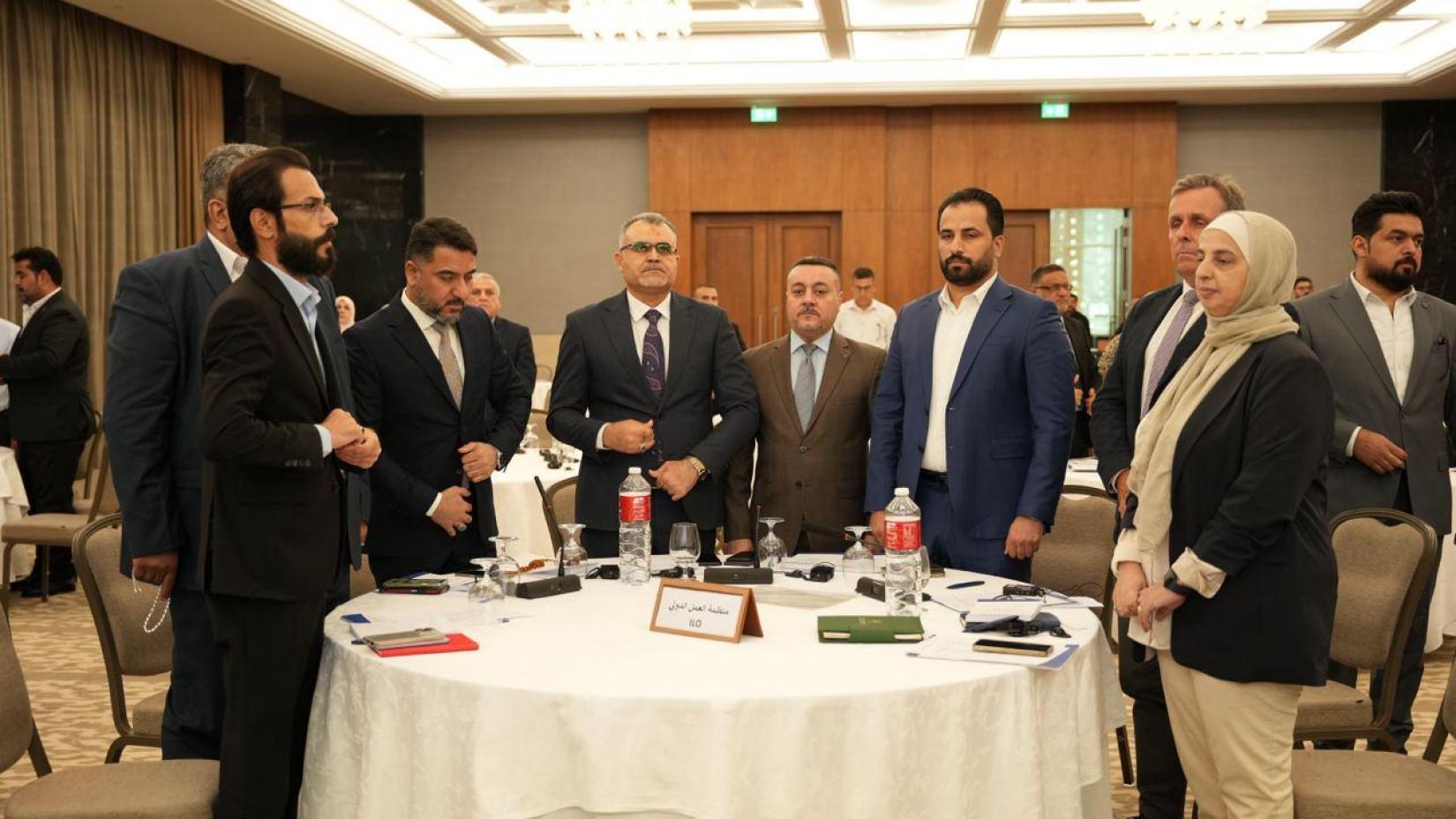Breaking Barriers: Promoting Inclusion and Safety for Women and Youth in Iraq's Oil and Gas Sector in Basra
٢٥ ئەیلوول ٢٠٢٤
A high-level tripartite workshop was held today in Basra to address critical issues surrounding labor conditions, the labor environment, and environmental practices within Iraq’s vital oil and gas sector.

Basra, Iraq, September 24, 2024
Organized by the ILO in partnership with the local government, represented by First Deputy Governor Mr. Zaid Al-Emara, the event gathered senior officials from the Basra Chamber of Industry, workers' organizations, national and international companies, and key figures from the Social Security Department, Labour and Vocational Training Directorates, and Occupational Safety and Health (OSH) from Baghdad and Basra. The ILO Deputy Regional Director for the Arab States and the ILO Iraq Country Coordinator were also in attendance.
The workshop was opened by First Deputy Governor Mr. Zaid Al-Emara, who stated, “We take this opportunity today, with the presence of all government parties, the private sector, and the International Labour Organization, to find solutions that encourage youth to work in the private sector. As the local government, we also have a specific vision to use social responsibility projects, including specialized academies aimed at developing the skills of job seekers in various fields required by the labor market.”
The workshop fostered social dialogue, bringing together diverse stakeholders to discuss these issues and work collaboratively on solutions. Discussions centered on improving workplace safety, enforcing stronger labor rights, and integrating environmentally sustainable practices across the sector.
The ILO Deputy Regional Director for the Arab States, Mr. Peter Redemaker, stated, “Today’s workshop is an essential step in the right direction. Through this rapid assessment, we aim to gain a clearer understanding of the challenges and opportunities faced by oil companies in Iraq, with a focus on employment practices, worker rights, and the impact of the industry on local communities. As we look ahead, we must also recognize the critical intersection of the oil and gas industry with climate change and Just Transition.”
The workshop presented the findings of a rapid assessment of labor conditions, work environments, and environmental practices in Basra’s oil and gas sector, offering a comprehensive overview of the current landscape. Key results included a lack of female participation in 40% of international companies versus 25% of local companies. Skills development is offered by only 50% of international companies compared to 26% of local ones, while only one international and 23% of local companies employ persons with disabilities. Alarmingly, 10% of men and 57% of women reported experiencing harassment by a coworker, supervisor, or manager during or after hiring. Safe transportation is provided by 63% of international versus 55% of local companies for both genders.
Childcare facilities are rare, with only one international and four local companies offering nurseries. In terms of social security, 63% of international versus 27% of local companies have over half of their employees registered. Paid maternity leave is unavailable in 85% of local and 50% of international companies. Furthermore, 75% of international and half of local companies are unaware of their impact on climate change, and only a few have policies addressing this issue. Transparent greenhouse gas emission reports are produced by just one international and two local companies.
Moreover, the findings on Occupational Safety and Health (OSH) emphasized the need for significant improvements in safety protocols within the sector. The report identified several hazards that workers face and called for the adoption of more rigorous safety measures to reduce risks and improve worker protection.
To tackle these challenges, the workshop proposed several key recommendations, focusing on improving employment and recruitment practices, enhancing safety and healthy workplace policies and employee welfare, promoting environmental responsibility and sustainability, and increasing the involvement of SMEs and young entrepreneurs in the sector’s supply chain.
In conclusion, the event underscored the importance of continued collaboration between national and local governments, workers' organizations, employers’ organizations, and private sector companies to drive positive change. By focusing on the well-being of workers and the sustainability of the environment, the sector can contribute not only to Iraq’s economic growth but also to social and environmental progress.



